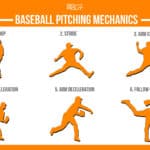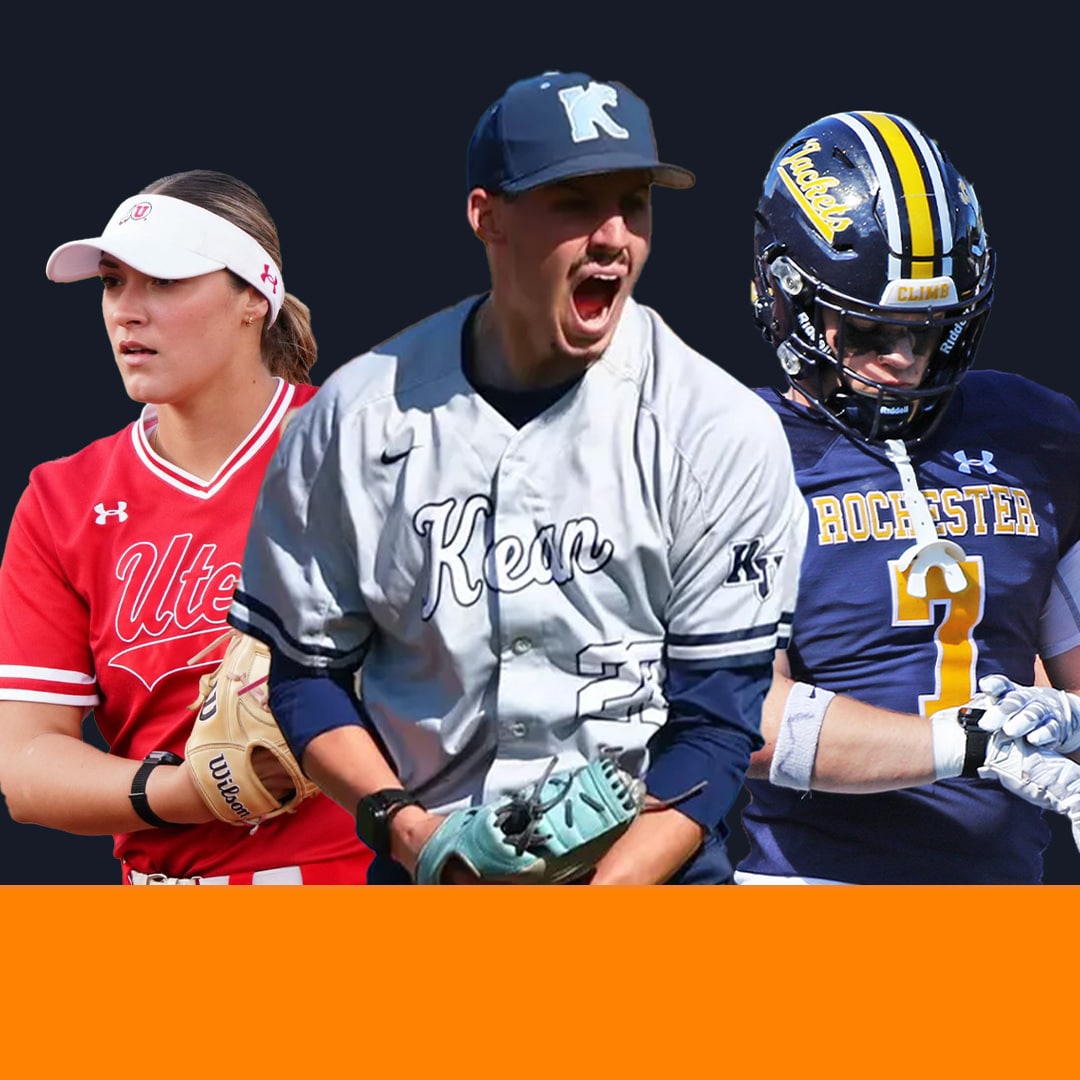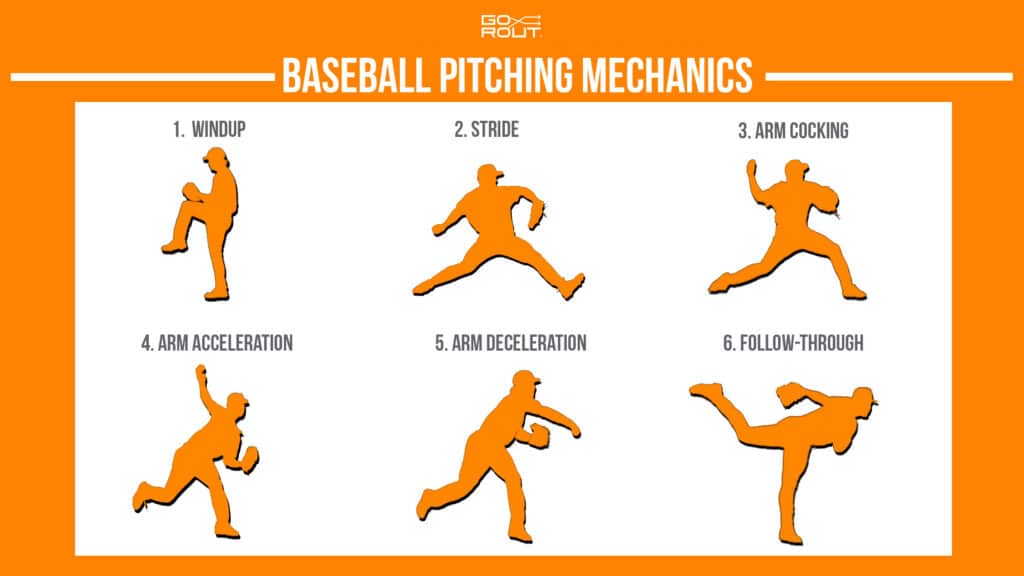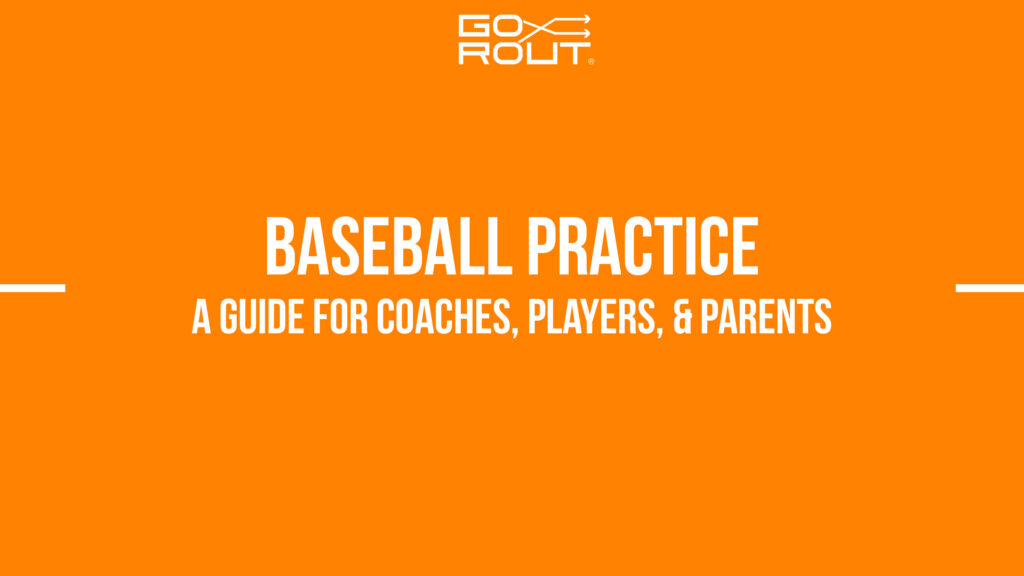Sports Coaching Technology: Top 8 Trends for Winning Teams
Reading Time: 10 minutes
Reading Time: 10 minutes
Modern sports coaching technology is transforming how teams train and strategize to win games by giving coaches real-time data and advanced tools that were impossible just a few years ago.
This guide walks through sports technology trends shaping successful teams right now.
You’ll see how real-time communication, data analytics, and injury prevention systems can boost your squad’s performance.
Each trend comes with real examples and a few thoughts to help you figure out what might be a game-changer for your coaching style.
Key Takeaways
Sports coaching technology gives you a competitive edge. These eight technological advancements are helping teams win more and keep their players healthy. They’re crucial for monitoring and improving an athlete’s performance.
- Wearable technology tracks heart rate, speed, and movement. It helps you spot injuries before they even happen and improve player performance by tracking key metrics and informing training adjustments.
- AI-powered video analysis breaks down game footage automatically. You’ll catch opponent weaknesses and fix your team’s mistakes in record time, enhancing performance by providing actionable feedback for both athletes and coaches.
- Communication systems like GoRout let you send plays right to players in-game. Forget yelling or waving your arms in a packed stadium.
- Virtual reality training drops athletes into game scenarios without the risk of contact. Players get to practice decision-making safely.
- GPS tracking pinpoints every player’s movement during practice and games. You can fine-tune positioning and cut down wasted effort.
- Biometric monitoring warns you when someone’s pushing too hard. Real-time health data means you can prevent burnout and overtraining.
- Smart textiles built into uniforms collect performance data on the fly. No need for extra gadgets strapped to your players.
- Data visualization tools turn raw stats into clear charts. Coaching decisions get easier with info you can understand.
- Cognitive training apps sharpen mental focus. Better concentration means fewer mistakes when it matters most.
The best teams balance high-tech tools with real human coaching. Tech can make you a better coach, but it doesn’t replace the connection you have with your players.
The Basics Of Sports Coaching Technology
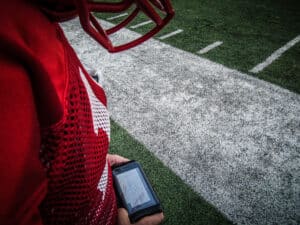
Sports coaching technology blends digital tools and wearables with data analysis to help coaches make better calls about training programs and athlete development.
Integrating technology starts with figuring out what your team really needs. Maybe you can start with a simple communication app or basic trackers before jumping into the deep end with advanced systems.
Critically evaluate and wisely implement new technology to maximize benefits and minimize risks for athlete performance and injury prevention.
New technologies mean your coaching staff needs to pick up new skill sets. It takes time, but the payoff is big for teams that are serious about winning.
Trend #1: Real-Time, On-Field Communication Tools

Modern teams need to make split-second decisions. However, coaches experience common issues with old on-field communication methods:
- Hand signals slow things down and cause confusion
- Paper playbooks eat up practice time
- Players forget long sign sequences
- The weather makes signals tough to see
Real-time communication tools cut out delays between coaches and players. These systems swap old-school hand signals for instant digital messages sent to wearables.
Advanced coach-to-player communication systems like GoRout use cellular-based systems. Since you don’t rely on WiFi, you don’t waste any time setting up, and connections don’t drop mid-game.
Let’s explain why GoRout is one of the best apps for coaches to communicate with players.
Football applications
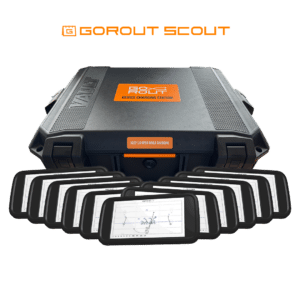
GoRout Scout focuses on practice efficiency, delivering scout-team plays instantly so players can double their reps, reduce huddle time, and simulate game-speed scenarios with precision.
GoRout Gridiron revolutionizes in-game communication by allowing coaches to send encrypted play calls and adjustments directly to players’ wrist-worn devices in under 300 milliseconds.
It eliminates the need for hand signals or shouted instructions, ensuring instant clarity even in noisy stadiums.
Baseball and softball solution
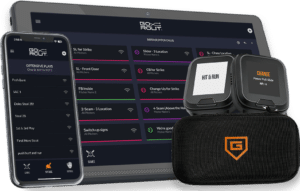
GoRout Diamond replaces outdated verbal or visual signs with a one-touch, fully customizable communication system.
Coaches can securely send pitch calls, defensive shifts, bunts, steals, and more directly to weather-proof, glove-friendly wearables that function without WiFi, powered by encrypted cellular networks.
It ensures quick, clear, and secure in-game decision-making, streamlining the process and removing opportunities for sign-stealing.
Across sports, GoRout software solutions enhance speed, accuracy, and security in critical moments during training sessions and games.
Check out our testimonials and case studies to learn more.
Key benefits
- Built by coaches for coaches
- Secure, private and encrypted communication
- Live adjustments and instant responses
- Clear display visibility in bright
- Works in any weather and environment
- No WiFi or technical setup needed
- Compliant with college and high school rules
- Comes with a 100% breakage warranty
These tools enhance communication by taking the guesswork out of play execution. They also enable coaches to provide instant feedback and guidance, even in high-pressure situations.
Trend #2: Integrated Athlete Data Systems
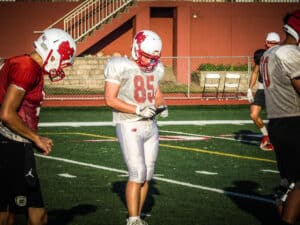
Centralized tracking platforms have changed the game. Instead of juggling a bunch of apps and spreadsheets, you get everything in one dashboard.
These systems collect and process vast amounts of raw data from multiple sources, making it easier to manage and analyze information like:
- GPS trackers for movement
- Heart rate monitors for stress
- Sleep trackers for recovery
- Nutrition apps for diet
- Medical injury reports
Data collection happens automatically during training and games. Wearables send info straight into the system with no need for manual entry.
It gives you detailed insights you never had before. See physiological responses like how a bad night’s sleep affects sprint speed or how the heart rate shifts with different drills.
Performance analysis gets deeper when you combine all this info. The system shows patterns over weeks and months, helping coaches identify trends with a larger data sample.
Team performance improves because you spot issues early and adjust fast with clear tips about rest days, training intensity, and rotations.
Trend #3: Smarter Video And Practice Breakdown
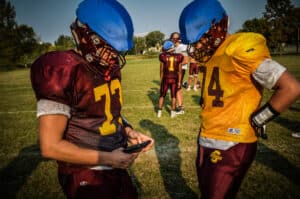
Video analysis software now breaks down footage in minutes, delivering instant feedback on player moves, formations, and key plays.
AI-powered review tags important moments automatically so you don’t have to re-watch entire games. Key actions like passes, defensive errors, first downs, and scoring chances are highlighted, revealing performance patterns.
By merging video and data into training, these platforms deliver a complete development package to help teams spot and act on performance patterns.
Personalized feedback arrives within a day, showing exactly what to work on. Features include:
- Auto-tagging (saving 5+ hours per review)
- Drill suggestions (creating practice plans), and
- Player profiles (tracking improvement)
Smart tech connects game videos with practice, keeping tabs on movements to give solid tactical advice. Players can spot their mistakes and jump into specific drills right away, helping those lessons stick.
AI takes it up a notch by making highlight reels for each player that fit their role and what they want to achieve. Coaches focus on strategy instead of sifting through hours of film.
Teams using these tools improve skills faster and prepare more effectively.
Trend #4: Athlete Development Through Personalized Metrics
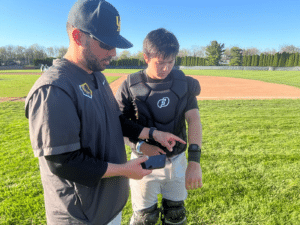
Technology now allows coaches to address the specific requirements of individual athletes, ensuring that each person’s development is maximized.
Customizing practice by role, skill level, and learning style
Your coaching gets better when you focus on player roles and abilities. Analyzing historical data shows how each athlete responds to different types of training.
Position-specific metrics identify patterns and track the demands of each role. A quarterback’s needs are totally different from a cornerback’s. GPS data shows movement, while heart rate monitors reveal energy use.
Training is tailored to skill levels. Beginners focus on basics, and advanced players work on complex skills. Performance data informs all training decisions.
Blending subjective coaching wisdom with hard data
You don’t have to choose between old school coaching and new tech. The best results come when you analyze data and mix your instincts.
Physical stats like speed and power give you solid benchmarks. But your gut feelings about player confidence, choices, and team vibes still matter a lot.
Data points to track:
- Sprint speeds and acceleration
- Jump height and power output
- Recovery time between efforts
- Sleep quality and stress levels
- Technique consistency scores
Adaptive training platforms and mobile coaching apps
Modern platforms change training advice on the fly using live athlete data. These tools help you react fast to adjust workouts and rest plans.
Mobile apps let you keep tabs on player growth between sessions. Athletes log how they’re feeling, chase personal goals, analyze performance data, and get feedback tailored just for them.
Trend #5: Load Monitoring And Injury Prevention
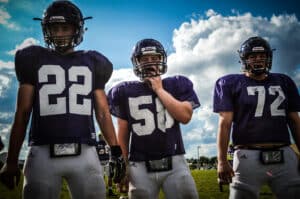
Smart platforms scan your team’s data for patterns and suggest the right training loads. They ping you when someone needs a break or can push harder, which boosts performance and lowers injury risk.
GPS trackers and heart rate monitors measure distance, speed, acceleration, and workout intensity, showing how athletes’ bodies handle stress.
Wearables, like chest straps, smartwatches, and GPS vests, deliver live updates on fatigue and recovery.
By linking movement data to recovery plans, coaches can rest players before problems arise. Training load monitoring compares recent workouts to long-term trends; sudden spikes prompt adjustments or added rest.
Teams using these systems reduce injury risk and keep more players game-ready. With sharper sensors and smarter software, this sports trend is now a vital part of keeping athletes healthy and competitive.
Trend #6: AR, VR, And Simulations In Practice Design
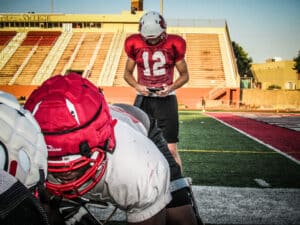
Virtual reality and augmented reality are transforming how you set up practice. Now, your athletes can experience real game situations without the wear and tear.
Virtual reps are catching up with physical training. Players can run plays in VR hundreds of times and never get tired. They sharpen decision-making and muscle memory safely in digital worlds.
AR overlays let you show real-time stats during practice. Athletes can check their speed, form, or technique feedback on the spot using smart glasses or phones.
Key benefits:
- Repeatable scenarios for steady learning
- Safe space for risky situations
- Instant feedback and tracking
- Cheaper training for tough plays
- Practice, rain or shine
Athletes build confidence by running tough scenarios over and over. When the real game comes, they’ve already “been there” under pressure.
Visual learning platforms with AI adapt to each player. The system tracks sticking points and builds custom training modules.
You can now simulate opponents and game conditions almost perfectly. Your team practices against virtual versions of rivals, using their actual play styles and habits.
These tools work best alongside classic training. Simulations prep the mind, while regular practice builds the body.
Trend #7: Predictive Modeling And Game Planning
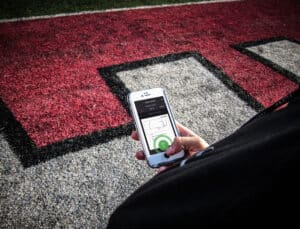
Coaches now use AI to break down opponent patterns, predict player performance, and sketch out winning plays before kickoff.
Coaches now gameplan like analysts
Your staff can tap into the same advanced tools as pro analysts. These systems crunch thousands of data points from past games to spot hidden trends.
The best teams blend human knowledge with machine learning. Your calls get stronger when stats back up your instincts.
Modeling “what if” scenarios before game day
Predictive modeling lets you trial different game plans digitally. You can run scenarios to see which tactics work best against each opponent.
Key scenario planning features:
- Player matchup predictions
- Weather impact analysis
- Injury replacement strategies
- Fourth-down decision modeling
This kind of prep helps you make sharper calls during games. Your team shows up with tested backup plans, ready for anything.
Tools shaping strategy with next-gen predictions
AI-powered platforms read live data and suggest tactical tweaks as the game unfolds.
Popular predictive modeling apps handle player rotation, timeout timing, and even predict when opponents might take big risks.
The tech helps you build flexible game strategies that keep up as things change on the field.
Trend #8: Unified Tech Ecosystems And Coaching Efficiency
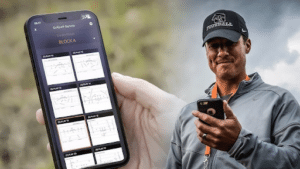
Your coaching suffers when you’re flipping between apps. Jumping from video software to messaging to stats eats up your day. Data slips through the cracks, and you miss key insights.
You need tools that work together. Unified platforms link athlete stats to training plans and chat tools. That means you decide faster and spend more time with your team.
Top teams now use platforms that pull together:
- Video breakdown tools
- Live performance tracking
- Team messaging
- Training schedules
- Progress dashboards
These integrated systems connect the dots by linking data that used to be stuck in silos. When your video clips line up with performance stats, patterns jump out faster.
Teams save their time by switching to unified systems. Coaches spend less time on busywork and more on athlete growth. Tracking progress gets easier when everything’s in one spot.
Unified tech ecosystems just make sense. Instead of learning five tools, you master one platform that does it all.
Conclusion About Sports Coaching Technology
Sports coaching technology is reshaping how you lead your team to victory. Modern tools give you data-driven insights that transform player development and game strategy.
Technology empowers you to make smarter decisions. AI analytics help you spot performance patterns you might miss. Wearable devices track player fatigue and injury risks in real time.
Your coaching becomes more precise with video analysis tools. You can break down plays frame by frame and show players exactly what needs improvement.
Your success depends on selecting the right technology partner.
GoRout stands out as the leading sports coaching technology provider that combines all the key communication tools coaches need. Its user-friendly interface makes complex play calls easy to understand and act upon.
Ready to transform your coaching approach?
FAQs About Sports Coaching Technology
What technology is used in sports coaching?
Coaches now use AI-powered video analysis to break down game film automatically. Wearable sensors track heart rate, speed, and movement as it happens.
Smart gear, like connected balls, gives instant feedback. Virtual reality headsets create game-like scenarios for skill work.
Mobile apps help with practice planning and stat tracking. Team chat platforms keep everyone in the loop between practices.
What is the newest technology in sports?
Biometric mental health tracking checks stress and brain function with high-tech sensors. AI coaching assistants now give real-time game analysis and tactical tips.
Smart compression wear spots injury risks before they get serious. Some wearables are even biodegradable for greener training.
Augmented reality overlays show athletes instant feedback on technique in the middle of practice.
What are the techniques used in sports coaching?
You can lean on data-driven analytics to spot what players do well or where they need to improve.
Personalized training adapts to each athlete’s needs.
Video sessions highlight key plays and areas to improve. Mental training apps build focus and grit with targeted drills.
Recovery tracking helps you balance training loads and avoid burnout.
What kind of technology is needed or used for sports management?
Team management uses practice planning software and digital playbooks for sharing strategy. Stat tracking apps log game numbers automatically.
Team chat apps handle schedules and announcements. Budget tools keep track of gear and travel costs.
Player databases store medical info and performance history safely.
What are the most effective sports tech innovations for coaching?
Automated video analysis saves coaches hours by quickly flagging key moments. There’s no need to slog through endless footage anymore.
Wearable tech is a game-changer for athletes, tracking performance in real time and spotting injuries before they become serious. It’s like having an extra pair of eyes on the field.
AI can analyze how your opponent plays and tell you their weaknesses you wouldn’t have noticed. That’s some serious strategy upgrade.
Personalized recovery programs help athletes bounce back quicker. Less downtime means more time to train and compete.
Connected training gear gives instant feedback, so players can adjust on the fly. Progress feels a lot more tangible that way.

